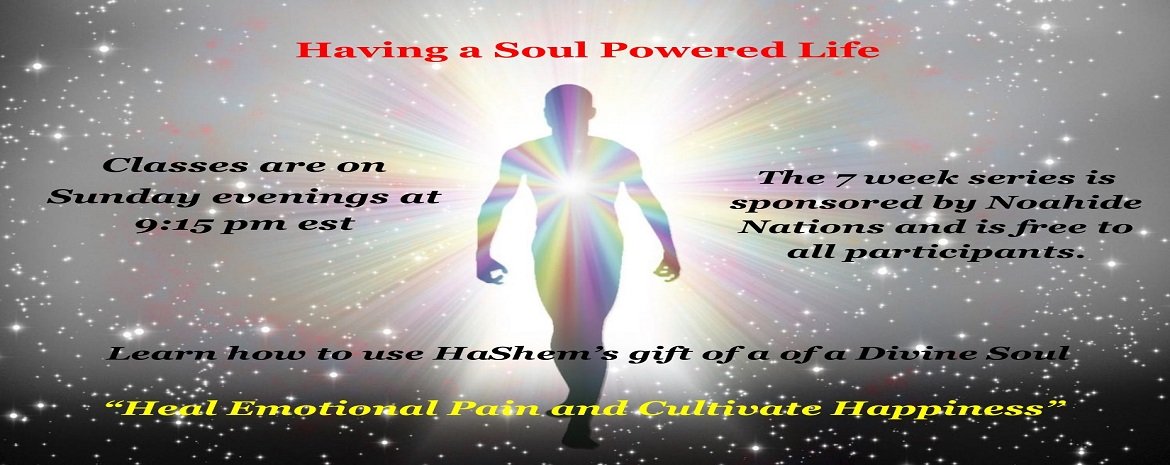Admitting You are Wrong
- Category: General
- Hits: 13301
Only one with a heart of stone could fail to be moved by the drama of Joseph's reconciliation with his brothers and his reunion with his father after having been given up for dead for 22 years.
Our present portion brings us to the very climax of the story, which takes up all of the last four out of the twelve portions of the book of Genesis, i.e. one third of the whole book. As discussed in the commentary on Vayeishev (Genesis 37:1-40:23) , conflict between brothers is also a recurrent theme throughout the earlier portions of Genesis (as in the case of Cain & Abel, the sons of Noah, Abraham & Lot, Isaac & Ishmael and Jacob & Esau). It is the fact that the conflict between Joseph and his brothers was eventually resolved peaceably that makes the lessons of this story so important for all humanity in our time, since the central issue we face is how we can all co-exist peacefully on this ever more crowded earth. It is enough to take a glance at the news media to see how humanity is wracked with conflicts between opposing beliefs, cultures, blocs and nations as well as between different factions within countries, communities, work places and in people's very homes. Everyone believes that right and justice are on their side while their opponents are in the wrong. Few have the magnanimity to recognize that their enemies might also have a case, and people remain locked in self-protective and aggressive postures causing the cycle of conflict to continue. It is not always true that both sides in a dispute must have a just case and that the dispute can be settled with a 50-50 compromise (cf. I Kings 3:16-28). God has made people with many different traits and temperaments; some have a tendency to greater placidity; others are more assertive. It is not uncommon for people to commit acts that encroach upon the lives of others, drawing them into conflict mode. Joseph was not to blame for being Jacob's youngest son and the object of his favoritism, which made his brothers resentful. Undoubtedly Joseph's possibly well-intentioned reports to Jacob on their behavior only stoked the flames, as did his innocent telling of his dreams. His brothers became convinced that he was a terrible demon for whose extermination justice itself cried out. They all but killed him, selling him into the pain and degradation of slavery (Genesis ch. 37, see Rashi on v. 17). Thus we have in this story one victim and a gang of aggressors with murderous intentions. Yet in the end, after all the pain and anguish, the aggressors relent and the victim forgives. It was Joseph who suffered the most (except for his father Jacob), yet Joseph's very suffering and subsequent ascent to his destined greatness taught him that "God kills and gives life, lowers people down to hell and brings them up" (I Samuel 2:6). For "happy is the man that God chastises but thereby You teach him from Your Torah" (Psalms 94:12). Joseph knew that even though his brothers had indeed sold him into slavery in Egypt, they were but agents of God, Who sent him ahead of them in order to provide for them and sustain them in their destined sojourn in that country. It was Joseph's complete faith in God that enabled him to forgive his brothers for their crime against him and to display the noble magnanimity exemplified in his behavior throughout the story. As the forgiving victim, Joseph shows that he was firm in two of the fundamental pillars of faith: 1. God controls everything: Everything in the entire universe is under God's control. This includes everything that happens to you personally, both spiritually and materially, including what you yourself do, whether deliberately or unwittingly, willfully or under compulsion: everything is from God. Even when appearances suggest otherwise, the believer pays attention not to the external appearance of this world but to the underlying truth. 2. Reverses: When things appear to turn out badly for us, we have to accept that this is God's will and that whatever happens is for the best. Even when things go wrong because of something we ourselves may have thought, said or done, we must accept that this too is from God. Other people are also free agents, yet everything they do is ultimately controlled by God. If someone insults you or in some way harms you, know that this has been sent by God as a way to cleanse your soul. If things go against you, be patient. When you accept everything as God's will, this causes the veil of concealment to be removed, thus manifesting God's control over all creation (from "Seven Pillars of Faith" by Rabbi Yitzchak Breiter ). Although aggrieved, Joseph forgave his brothers completely and showed them the utmost love. He wanted them to repent for their own good. When they came under his power, he did not reprove them – for this is embarrassing to the wrongdoer. Instead, with consummate skill he manipulated them into a situation where they would see for themselves that they had committed a great wrong. Thus last week's portion ( Mikeitz , Genesis 41:1-44:17) told how when Joseph first imprisoned his ten older brothers and kept one of them hostage to ensure that the others would bring Benjamin too down to Egypt, the brothers – who had also undoubtedly been reared on the above principles of faith – immediately realized that if they suffered such a reverse, it must be the hand of God. "And each one said to his brothers, But it is we who are to blame because of our brother, the pain of whose soul we saw when he begged us and we did not listen. That is why this trouble has come upon us" (Genesis 42:21). The ensuing story traces the successive stages of Joseph's brothers' remorse, contrition and repentance, until in the end they admitted to him how terribly they had wronged him and literally begged him to forgive them and not to take revenge, as described in the concluding verses of the book of Genesis at the end of next week's portion (Genesis, 50:15-22). Penitent wrongdoers also display greatness – when they have the courage to admit their guilt and change their ways. This is an important lesson for all of us, because very few can honestly say that they are innocent of all wrong in their behavior towards others. It is also an important lesson for leaders – for the qualities of true leadership are a central theme in the story of Joseph and his brothers. We live in an age where many of those charged with the leadership of countries and world blocs display a marked inability to admit their human fallibility or take responsibility for the huge errors and mistaken assumptions that have led us to the brink of world war, economic ruin and ecological disaster. Not only under dictatorial regimes but even in the supposedly "free" world, the mainstream media, which are largely controlled by the same interests that buttress the leadership, likewise cosmetically paper over their follies with "spin". But the true leader is the first to admit his own wrong and sin before God, as in the immortal words of King David, exemplar of the Messianic King: "Be gracious to me, O God, according to Your mercy; according to the multitude of Your compassions, blot out my transgressions. Wash me thoroughly from my iniquity and cleanse me from my sin. For I know my transgressions; and my sin is ever before me…. Behold, You desire truth in the inward parts; make me, therefore, to know wisdom in my inmost heart… Create me a pure heart, O God; and renew a steadfast spirit within me…. Then I will teach transgressors Your ways; and sinners shall return to You… O Lord, open my lips, and my mouth shall declare Your praise" (Psalms vv 3-17).


 French (FR)
French (FR)  English (UK)
English (UK) 




